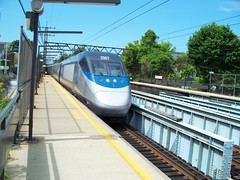There is no shortage of blog posts and online commentary about the US elections right now.? Despite being dedicated to under reported news, today I’m going to add just a little more to this excessively covered, global concern.
 There is this long tradition in the United States that during presidential elections, candidates constantly play the patriotic card and use variations of these slogans:
There is this long tradition in the United States that during presidential elections, candidates constantly play the patriotic card and use variations of these slogans:
The US has the greatest workforce in the world.
The US is the greatest force for good in the world.
The US is the greatest country in the world.
Yet anyone who studies history or labor statistics will find plenty of evidence contrary to these statements. Actually you don’t even have to study anything, regardless of country, when you read those statements you should recognize they aren’t true.? Yet election after election, the two mainstream ruling parties say these three over and over.
Watching speeches and debates between Obama and McCain or Biden and Palin, all of them make sure to spew these empty lines as if they’re trying to appease some segment of the audience that despite all logic and facts to the contrary, want to believe this is true.
Thankfully there are countries in the world were candidates don’t do this. Smaller countries, older countries that have weathered mass destruction and extreme poverty, they don’t bother repeating mantras about being the best and the greatest in the world.? Even the Finnish national anthem is about being one nation among many great nations of the world.
I wonder if I will live to see a major candidate in the US that finally stops pandering to jingoism and a mass superiority complex.? Besides being inaccurate, these types of statements help validate and continue destructive and failed policies and practices. I also hope this tradition doesn’t spread further in the world. Of course nationalism is not simply an American phenomenon and it isn’t going to disappear. But this rhetoric of we are the best, we are always right, everything we do is good; if a country is ever going to get better and a candidate make a real change, this practice will have to end.
 There is this long tradition in the United States that during presidential elections, candidates constantly play the patriotic card and use
There is this long tradition in the United States that during presidential elections, candidates constantly play the patriotic card and use  Among my favorite of his statements is when he is speaking about the US political culture and the current presidential race, he mentions the tendancy for some candidates to say “We’ve had enough talk, we need action” to which Zizek? something like NO. Now more than EVER, WE NEED TALK. TALKING is essential before we take significant action.
Among my favorite of his statements is when he is speaking about the US political culture and the current presidential race, he mentions the tendancy for some candidates to say “We’ve had enough talk, we need action” to which Zizek? something like NO. Now more than EVER, WE NEED TALK. TALKING is essential before we take significant action. Almost 20 years later more and more people in the US realize this outlook is what has no future, and railroads are needed now more than ever.? The problem is when they look to those old lines, they find they’re unusable or, in many cases, they’ve been removed and replaced with condo’s and parking lots. Occasionally they’ve managed to salvage an old line.
Almost 20 years later more and more people in the US realize this outlook is what has no future, and railroads are needed now more than ever.? The problem is when they look to those old lines, they find they’re unusable or, in many cases, they’ve been removed and replaced with condo’s and parking lots. Occasionally they’ve managed to salvage an old line. No matter where I look in the service industry, the Netherlands seems to be lacking workers. Yet at the same time, I can think of many university students who would never take such jobs.? I’m also reminded of my fellow university graduates who are seeking work in the field of their studies and would not take up work in a restaurant or a grocery store.
No matter where I look in the service industry, the Netherlands seems to be lacking workers. Yet at the same time, I can think of many university students who would never take such jobs.? I’m also reminded of my fellow university graduates who are seeking work in the field of their studies and would not take up work in a restaurant or a grocery store.